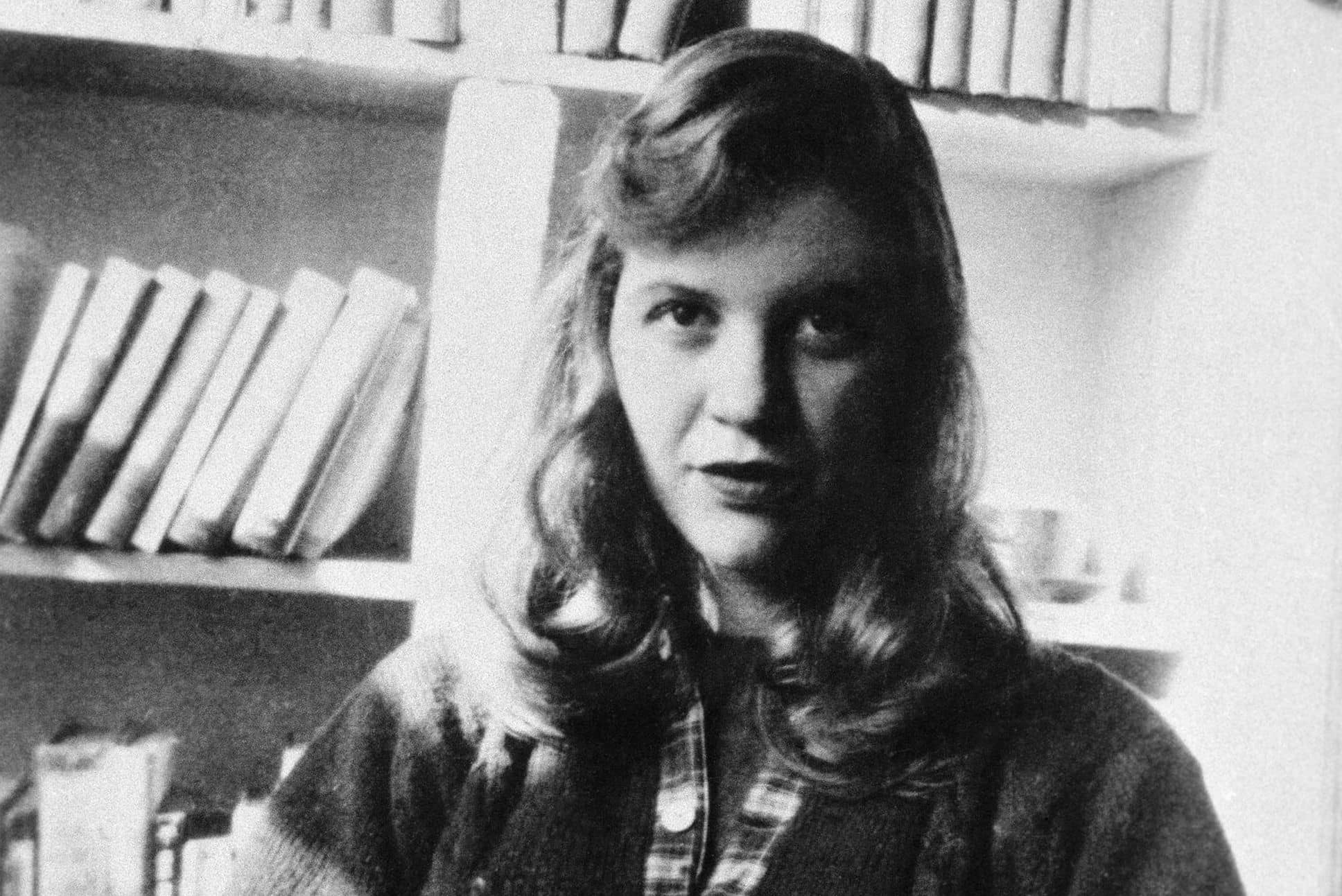
Who was Sylvia Plath? Sylvia Plath, born on October 27, 1932, in Boston, Massachusetts, remains one of the most influential poets and novelists of the 20th century. Known for her confessional style, Plath's work delves deeply into themes of mental illness, identity, and human relationships. Her life, marked by academic brilliance and personal turmoil, included a tumultuous marriage to poet Ted Hughes and a struggle with depression that led to multiple suicide attempts. Despite her tragic death at age 30, Plath's legacy endures through her powerful poetry, her semi-autobiographical novel The Bell Jar, and posthumous accolades, including a Pulitzer Prize for The Collected Poems.
Key Takeaways:
- Sylvia Plath's early life and family dynamics greatly influenced her literary works, with her father's authoritarian nature and eventual death shaping her relationships and poems, notably in "Daddy."
- Plath's academic achievements, struggles with mental health, and tumultuous marriage to Ted Hughes all played significant roles in shaping her poetic style and enduring literary legacy.
Early Life and Influences
Sylvia Plath's early years were marked by both promise and challenges. Her upbringing and family dynamics played a significant role in shaping her future works.
-
Birth and Early Life: Sylvia Plath was born on October 27, 1932, in Boston, Massachusetts. Her mother, Aurelia Schober, was a master’s student at Boston University when she met Plath’s father, Otto Plath, who was her professor.
-
Father’s Influence: Otto Plath was a strict father who taught both German and biology, with a focus on apiology—the study of bees. His authoritarian attitudes and eventual death from complications related to diabetes drastically defined Plath’s relationships and her poems, most notably in her elegiac and infamous poem “Daddy”.
-
First Poem: At the age of eight, Plath published her first poem, simply titled “Poem,” in the Boston Herald newspaper. This early publication marked the beginning of her prolific writing career.
-
Journaling: Plath kept a journal from the age of eleven, which contained both artwork and poetry. Her talent in visual art was recognized, and she won a Scholastic Art & Writing award.
Academic Achievements
Plath's academic journey was filled with accolades and opportunities that further honed her literary skills.
-
Education: Plath excelled academically, repeating the fifth grade after her family moved from Winthrop to Wellesley, Massachusetts. Despite this, she continued to excel in college, earning straight As and a scholarship to Smith College.
-
Smith College: At Smith College, Plath won a contest to become one of a few guest editors at Mademoiselle magazine during the summer of 1953. This experience marked a turning point in her life and work, inspiring her novel The Bell Jar.
-
Mademoiselle Magazine: During her time as a guest editor at Mademoiselle, Plath described the experience as “pain, parties, work.” Her personal journals from that summer corroborate the tumultuous nature of her time in New York City, including an attempted rape that she detailed in The Bell Jar.
Struggles with Mental Health
Plath's battle with mental health issues was a recurring theme in her life and work.
-
Depression and Suicide Attempts: Plath struggled with depression throughout her life, attempting suicide multiple times. Her first brush with suicide occurred after missing an opportunity to meet the writer Dylan Thomas, leading her to cut up her legs in an attempt to see if she was “brave” enough to commit suicide.
-
Teaching Career: After completing her education, Plath accepted a teaching position at her alma mater, Smith College, in 1957. However, she found the job stressful and left academia to focus on her writing by November of that year.
Marriage and Personal Life
Plath's personal life, especially her marriage to Ted Hughes, had a profound impact on her work.
-
Marriage to Ted Hughes: In 1956, Plath married the British poet Ted Hughes, who would later become a significant influence on her work. Their marriage was marked by turmoil, including Hughes’s affair with Assia Wevill, which contributed to Plath’s mental health issues.
-
Poetic Style: Plath is renowned for her confessional poetry style, which focused on her personal experiences and trauma. Her poetry often explored themes of mental illness, identity, and the complexities of human relationships.
Literary Achievements
Plath's literary contributions have left an enduring legacy.
-
The Bell Jar: Published under the pseudonym Victoria Lucas in 1960, The Bell Jar is a semi-autobiographical novel that chronicles a young woman’s coming of age and descent into madness. The book was not widely recognized until after Plath’s death, when it became a surprise bestseller in the U.S. in 1971.
-
Colossus: In 1960, Plath published Colossus, a collection of poems that received positive critical reviews in England. This was her only major work published during her lifetime.
-
Posthumous Recognition: After her death, Plath received significant posthumous recognition. In 1982, she won a Pulitzer Prize for The Collected Poems, edited by Ted Hughes.
Lesser-Known Works and Facts
Beyond her well-known works, Plath also ventured into other literary forms and faced various personal challenges.
-
Children’s Books: Plath also wrote children’s stories, which were published posthumously. One of these stories, The It-Doesn’t-Matter-Suit, tells a sweet tale about Max Nix and his mustard yellow suit. The story includes references to her father’s names, Otto and Emil.
-
Headstone Vandalism: Plath’s grave in West Yorkshire, England, has been repeatedly vandalized. Her married name was initially expunged from the headstone, leading to a period without any marker. The stone was eventually replaced with her name inscribed as Sylvia Plath.
-
Biographical Scrutiny: Due to her tragic death at age thirty and the controversy surrounding her life and work, Plath has been the subject of extensive biographical scrutiny. Multiple biographies have been published, each offering unique insights into her life and writing.
-
Early Academic Achievements: Plath was a driven high achiever in adolescence and young adulthood. She had straight As, a scholarship to Smith College, and was a Fulbright scholar studying in Cambridge, England. She also won various writing prizes while in college.
-
Assault on a Blind Date: During her first year at Smith College, Plath was assaulted on a blind date. This traumatic experience could have inspired her short story “A Brief Encounter” and is documented in her Unabridged Journals.
-
Car Accident Attempted Suicide: In 1962, Plath attempted to take her own life by driving her car into a river. This event occurred the same month she discovered Hughes’s affair with Assia Wevill. Plath later admitted to police that the accident was an attempt to end her life.
-
Paranoia About Teaching Abilities: After accepting a teaching position at Smith College in 1957, Plath began to feel extreme paranoia about her abilities. She found the teachers she once admired to be quite different as coworkers and eventually left academia to focus on writing.
-
Family Dynamics: Plath’s relationship with her mother, Aurelia Schober, was complex and often tumultuous. Her journals reveal a deep hatred towards her mother, which is reflected in many of her poems.
-
Father’s Legacy: Otto Plath’s legacy continued to influence Sylvia long after his death. His strict authoritarian nature and the study of bees inspired some of her most famous poems, such as “Daddy”.
-
Journal Entries: Plath’s journals provide a detailed account of her life, including her struggles with depression, relationships, and creative processes. These journals have been extensively studied by biographers and critics.
Biographical Works
Numerous biographical works have explored different facets of Plath's life and career.
-
Mad Girl’s Love Song: Andrew Wilson’s book Mad Girl’s Love Song: Sylvia Plath and Life Before Ted explores Plath’s life before her marriage to Ted Hughes. The book delves into her early years, education, and initial writing endeavors.
-
Pain, Parties, Work: Elizabeth Winder’s Pain, Parties, Work: Sylvia Plath in New York, Summer 1953 focuses on Plath’s experience as a guest editor at Mademoiselle magazine during the summer of 1953. The book provides a detailed account of this pivotal period in her life and writing career.
-
American Isis: Carl Rollyson’s American Isis: The Life and Art of Sylvia Plath offers a comprehensive biography of Plath, covering her early life, education, marriage, and literary career. The book provides insights into both her personal struggles and artistic achievements.
Legacy and Cultural Impact
Plath's influence extends far beyond her own work, inspiring generations of writers and becoming a cultural icon.
-
Ted Hughes’s Influence: Ted Hughes had a significant influence on Plath’s work, both during their marriage and after her death. He edited her collected poems and wrote an introduction that highlighted her artisan-like approach to poetry.
-
Sylvia Plath Effect: The term “Sylvia Plath effect” was coined by psychologist James C. Kaufman in 2001 to describe the stereotype of the depressed poet. However, Kaufman later reframed his perspective, calling himself “young and stupid” at the time he introduced the term.
-
Cultural Icon: Plath has become a cultural icon alongside other dark, brilliant female authors such as Virginia Woolf, Mary Shelley, and Emily Dickinson. Her life, particularly her painful marriage to Ted Hughes and her eventual suicide, has made her a subject of both fascination and controversy.
-
First National Publication: Plath’s first national publication was in the Christian Science Monitor. This marked a significant milestone in her career, as it introduced her work to a broader audience beyond local magazines and newspapers.
-
Short Story Collection: A new short story/novella by Plath was published in Britain by Faber & Faber in 2018, 55 years after her death. The story was initially rejected by Mademoiselle magazine when Plath was still a student at Smith College.
-
BBC Film Controversy: The BBC produced a film called Sylvia focusing on the relationship between Plath and Ted Hughes. However, Plath’s daughter Frieda refused to collaborate, citing the painful nature of the subject matter. Frieda even wrote a 48-line poem, “My Mother,” accusing the network of capitalizing on Plath’s suicide.
-
Rejection of The Bell Jar: Despite receiving a $2,080 novel-writing fellowship, The Bell Jar was initially rejected by publishers who found it “disappointing, juvenile, and overwrought.” However, she eventually found a British publisher and struggled to find an American publisher, with one telling her that she hadn’t managed to use her materials successfully in a novelistic way.
-
Artistic Beginnings: Before switching to writing, Plath studied studio art at Smith College. Her teachers recognized her talent for words over art and encouraged her to pursue writing instead.
-
Journal Entries on Mother: In her journals, Plath expressed deep hatred towards her mother, Aurelia Schober. This complex relationship is reflected in many of her poems, including “Daddy”.
-
Fulbright Scholarship: Plath won a Fulbright scholarship to attend Cambridge University in England. This experience further honed her writing skills and exposed her to a broader literary landscape.
-
Marriage Troubles: The marriage between Plath and Ted Hughes was tumultuous. Hughes’s affair with Assia Wevill contributed significantly to Plath’s mental health issues and eventual suicide.
-
Paranoid Episodes: After accepting the teaching position at Smith College, Plath experienced paranoid episodes regarding her teaching abilities. This stress led her to leave academia and focus on her writing.
-
Legacy and Impact: Sylvia Plath’s legacy extends far beyond her own work. She has inspired generations of writers and continues to be a cultural icon. Her life and writing have been the subject of extensive biographical scrutiny, with multiple biographies and critical studies exploring various aspects of her life and work.
Sylvia Plath's Lasting Impact
Sylvia Plath's life and work continue to resonate deeply with readers and writers alike. Her confessional poetry and semi-autobiographical novel, The Bell Jar, offer raw insights into her struggles with mental illness, relationships, and identity. Despite her tragic end, Plath's legacy thrives through her posthumous recognition, including a Pulitzer Prize for The Collected Poems. Her influence extends beyond literature, inspiring discussions on mental health and the complexities of human emotions. Plath's journey from a young poet to a literary icon underscores the enduring power of her words. Her story, marked by both brilliance and tragedy, remains a poignant reminder of the profound impact one individual can have on the world. Sylvia Plath's work will undoubtedly continue to inspire and captivate future generations, ensuring her place as a timeless figure in literary history.
Frequently Asked Questions
Was this page helpful?
Our commitment to delivering trustworthy and engaging content is at the heart of what we do. Each fact on our site is contributed by real users like you, bringing a wealth of diverse insights and information. To ensure the highest standards of accuracy and reliability, our dedicated editors meticulously review each submission. This process guarantees that the facts we share are not only fascinating but also credible. Trust in our commitment to quality and authenticity as you explore and learn with us.


